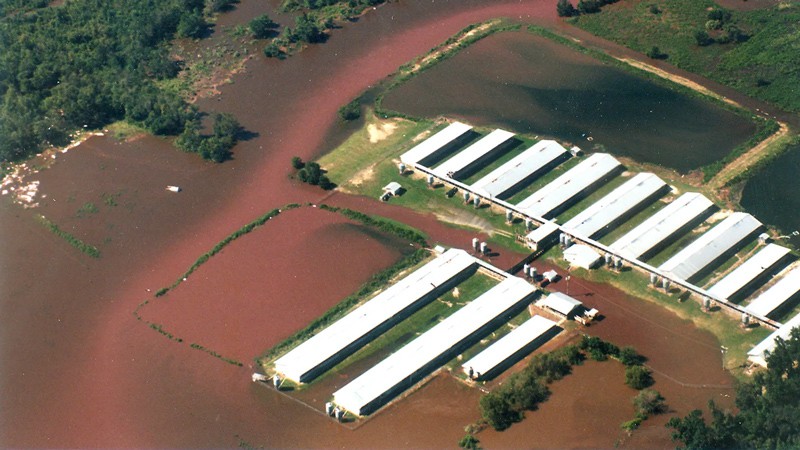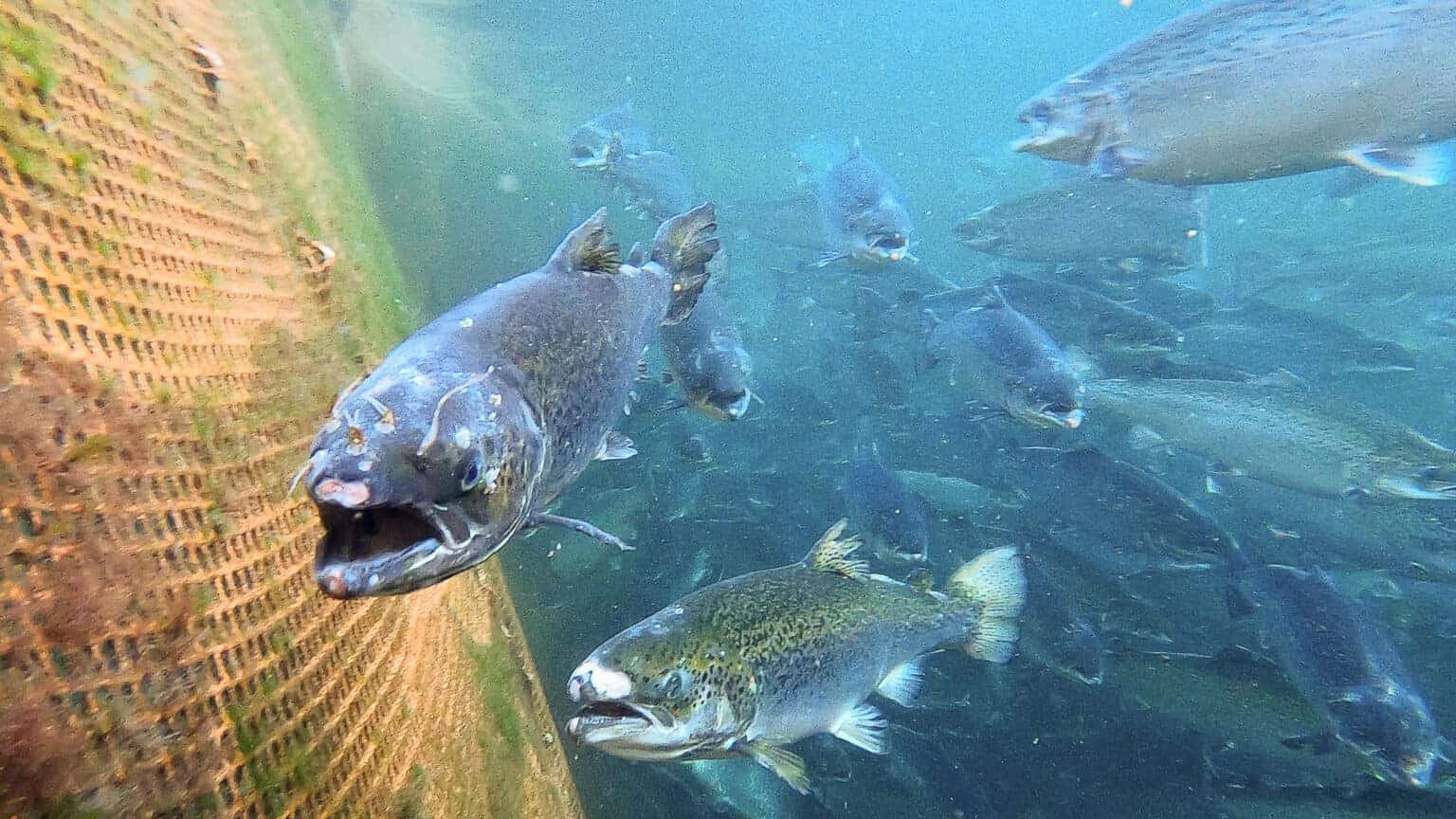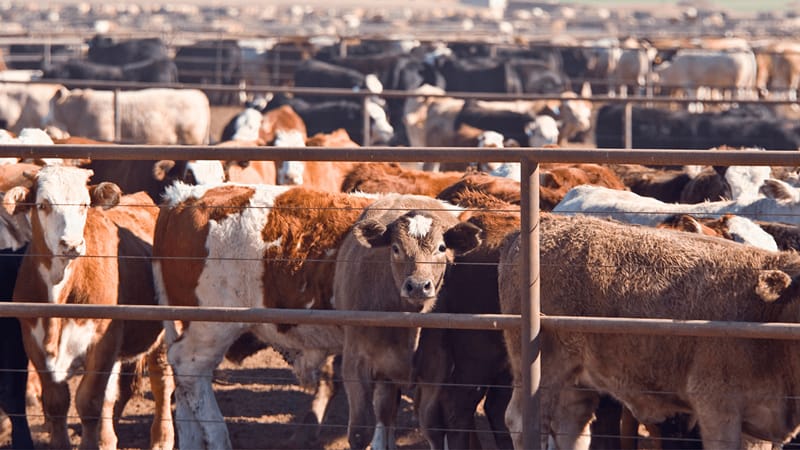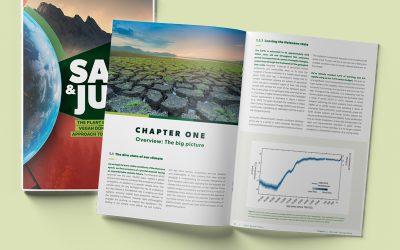Blog IT
„Jesteś tym, co jesz” – 5 najważniejszych wniosków z nowego serialu Netflixa
21 stycznia 2024 r.
Jeśli jeszcze nie jesteś weganinem, możesz nim zostać po obejrzeniu nowego, czteroczęściowego serialu Netflixa „Jesteś tym, co jesz: eksperyment z bliźniakami”. Opiera się na przełomowym badaniu przeprowadzonym przez Medycyna Stanforda opublikowano w listopadzie ubiegłego roku około 22 par bliźniaków jednojajowych i zbadano wpływ wyborów żywieniowych – jeden z bliźniaków je wegańskie jedzenie przez osiem tygodni, podczas gdy drugi stosuje dietę wszystkożerną. Naukowiec ds. żywienia ze Stanford, Christophera Gardnera, zdecydował się na pracę z bliźniakami, aby kontrolować czynniki genetyczne i podobne wybory dotyczące stylu życia.
Oficjalny zwiastun Netflixa „Jesteś tym, co jesz: Eksperyment z bliźniakami”
Serial dokumentalny przedstawia czwórkę bliźniaków z badania i ujawnia liczne korzyści zdrowotne wynikające z diety wegańskiej, w tym dowód, że w ciągu zaledwie ośmiu tygodni dieta wegańska poprawia zdrowie układu krążenia. Jednak serial opowiada również o zniszczeniu środowiska naszej ziemi przez rolnictwo zwierzęce i ogromnym cierpieniu, jakiego doświadczają zwierzęta hodowlane. To właśnie te kwestie, oprócz korzyści zdrowotnych wynikających z diety roślinnej, sprawiają, że jest to serial, który trzeba obejrzeć.
1. Jedzenie roślin jest zdrowsze niż jedzenie zwierząt

Źródło obrazu: Netflix
Widzowie poznają czarujące i często zabawne bliźniaczki jednojajowe, które przechodzą badania medyczne. Przez pierwsze cztery tygodnie uczestnicy otrzymują przygotowane posiłki, a przez ostatnie cztery sami robią zakupy i przygotowują jedzenie, trzymając się przydzielonej im diety. Bliźnięta są dokładnie monitorowane pod kątem zmian w ich zdrowiu i parametrach. Po upływie ośmiu tygodni bliźniaki będące na diecie wegańskiej straciły średnio o 4.2 funta więcej niż osoby jedzące wszystko i miały znacznie niższy poziom cholesterolu.
Weganie pokazali 20% spadek insuliny na czczo, jest to kluczowe, ponieważ wyższy poziom insuliny jest czynnikiem ryzyka rozwoju cukrzycy. Mikrobiom bliźniaka weganina był w lepszym zdrowiu niż jego wszystkożernego rodzeństwa, a szkodliwy tłuszcz otaczający ich organy, tłuszcz trzewny, znacznie się zmniejszył, w przeciwieństwie do bliźniaka wszystkożercy. Ogólne wyniki sugerują, że zdrowa dieta oparta na roślinach ma „znaczna korzyść ochronna kardiometaboliczna w porównaniu ze zdrową dietą wszystkożerną”.
Burmistrz Nowego Jorku, Eric Adams, pojawia się kilkakrotnie w serialu i jest żywym dowodem na to, że jedzenie roślin jest zdrowsze niż jedzenie zwierząt. Przejście na dietę roślinną spowodowało ustąpienie cukrzycy typu 2 u Adama, przywróciło mu wzrok i pomogło uratować mu życie. Adams jest siłą napędową Piątki wegańskie i „uczyniła posiłki roślinne domyślną opcją dla wszystkich pacjentów hospitalizowanych w swojej sieci 11 szpitali publicznych”, jak opisano w Bezpiecznie i sprawiedliwie zgłosić.
2. Choroby ludzkie i rasizm środowiskowy

Źródło zdjęcia: Mercy for Animals / Getty

Kredyt obrazu: Sojusz Rick Dove/Waterkeeper
Liczba świń w Karolinie Północnej znacznie przekracza liczbę ludzi z wieloma skoncentrowanymi operacjami żywienia zwierząt (CAFO) w regionie, z których niektóre mają nawet 60,000 XNUMX zwierząt. Cierpienie ludzi jest bezpośrednio związane z rolnictwem zwierzęcym w tym miejscu, jednym z największych producentów „wieprzowiny” na świecie. Hodowane przemysłowo świnie walczą o przetrwanie stłoczone w przerażających warunkach.
Fermy trzody chlewnej produkują ogromne ilości odpadów, a ogromne szamba na wolnym powietrzu są wypełnione odchodami i moczem. Te laguny zanieczyszczają lokalne źródła wody, szkodzą ekosystemom wodnym i powodują problemy zdrowotne u ludzi. Odchody świń są dosłownie rozpylane w powietrzu przez zraszacze bardzo blisko domów rodzinnych, z których większość stanowią mniejszości zamieszkujące dzielnice o niskich dochodach.
The Guardian wyjaśnia, „W rodzinach mieszkających w pobliżu ferm przemysłowych trzody chlewnej odnotowano wyższy wskaźnik śmiertelności niemowląt oraz zgonów z powodu anemii, chorób nerek i gruźlicy”. Oni kontynuują, „Problemy te „w sposób nieproporcjonalny dotykają” osób kolorowych: Afroamerykanie, rdzenni Amerykanie i Latynosi znacznie częściej mieszkają w pobliżu ferm przemysłowych”.
3. Zwierzęta cierpiące na fermach przemysłowych
Widzowie są zabierani w podróż do ferm przemysłowych, w których roi się od zwierząt chorych, martwych, rannych i żyjących we własnych odchodach. Dzięki wywiadom z byłym hodowcą kurczaków dowiadujemy się, jak te piękne, łagodne ptaki są hodowane „tylko po to, by cierpieć” i zmuszane do przebywania w brudnych, ciasnych przestrzeniach, gdzie nie widzą światła słonecznego i nie mogą rozłożyć skrzydeł. Dzisiejsze kurczaki są genetycznie hodowane tak, aby miały ogromne piersi, a ich organy i cały układ kostny nie są w stanie ich utrzymać.
Materiał filmowy pokazujący okrucieństwo i cierpienie w fermach przemysłowych.

Łososie żyją w ciasnych i stłoczonych warunkach, wśród których panują choroby.
Obraz: Poza stołem
Miliony ryb zamkniętych w hodowlach łososia powodują zanieczyszczenie i doprowadzają do wyginięcia dzikich ryb. Te ogromne farmy trzymają ponad milion ryb w niewoli i zajmują cztery boiska piłkarskie. Hodowane łososie są stłoczone w kolosalnych basenach tak zatłoczonych, że staje się to katastrofą dla zdrowia i środowiska z powodu chmur odpadów, odchodów i patogenów. Filmy przedstawiające chore, chore i umierające ryby na Gospodarstwa akwakultury są niepokojące – ponad 50% ryb sprzedawanych obecnie w supermarketach pochodzi z hodowli globalnych.
4. Gazy cieplarniane i zmiana klimatu
96% krów hodowanych na mięso w Stanach Zjednoczonych pochodzi z przemysłowych ferm tuczu. Krowy nie mogą się swobodnie poruszać i stoją tam dzień po dniu, jedząc niezwykle kaloryczne pokarmy, takie jak kukurydza i soja, aby szybko się tuczyć. Obraz mięsa krowiego w celofanowych opakowaniach na półkach w sklepie spożywczym pomaga widzom zrozumieć, że produkty te pochodzą od żywych, oddychających stworzeń. Obrazy wylesianie w Amazonii Widok lasów deszczowych i ferm tuczu z lotu ptaka jest szokujący.
George Monbiot, dziennikarz i zwolennik Traktatu o Roślinach, wyjaśnia, że przemysł mięsny produkuje „ogromne ilości zanieczyszczeń”. Krowy odbijają metan, gaz cieplarniany znacznie gorszy od dwutlenku węgla. Monbiot wyjaśnia przemysł rolny jest jednym z największych źródeł gazów cieplarnianych na Ziemi – głównego czynnika powodującego zmianę klimatu. „Sektor hodowlany produkuje więcej gazów cieplarnianych niż cały światowy sektor transportu”.
5. Dłuższa oczekiwana długość życia dla wegan
Wiek biologiczny to wiek Twoich komórek, w przeciwieństwie do wieku chronologicznego, który jest liczbą, którą świętujesz w dniu swoich urodzin. Pierwszego dnia badania telomery uczestników mierzono na tej samej długości. (Telomery są „konkretny Struktury DNA-białka „znajdują się na obu końcach każdego chromosomu”.) Pod koniec badania wszystkie bliźniaki na diecie wegańskiej miały dłuższe telomery i były biologicznie młodsze od swojego rodzeństwa na diecie wszystkożernej, którego telomery nie uległy zmianie. Ten znak odwróconego starzenia dowodzi, że można zmienić swoją biologię w głęboki sposób, po prostu zmieniając swój schemat żywieniowy w stosunkowo krótkim okresie czasu.
Po kamery przestały kręcić, cztery pary bliźniaków albo jedzą więcej posiłków roślinnych, albo jedzą połowę mięsa niż wcześniej, albo prawie całkowicie wyeliminowały czerwone mięso, albo są teraz wegetarianami. „Jesteś tym, co jesz” jest obecnie w czołówce 10 najchętniej oglądanych programów w 71 krajach, w tym w Kanadzie, Stanach Zjednoczonych i Wielkiej Brytanii.

Miriam Porter jest nagradzaną pisarką, która pisze o weganizmie, problemach sprawiedliwości społecznej i eko-podróżach. Miriam obecnie mieszka w Toronto ze swoim synem Noahem i wieloma uratowanymi futrzanymi przyjaciółmi. Jest pełną pasji aktywistką na rzecz praw zwierząt i zabiera głos w imieniu tych, których głosu nie można usłyszeć.
Więcej z bloga
6 ważnych wezwań do działania z raportu Safe And Just – część pierwsza
Przez Miriam Porter
Uprawiaj własny jarmuż i szpinak, aby uzyskać zdrowe zielone koktajle
Przez Miriam Porter
Znaczenie ćwiczeń i porady dotyczące budowania mięśni
Przez Miriam Porter




